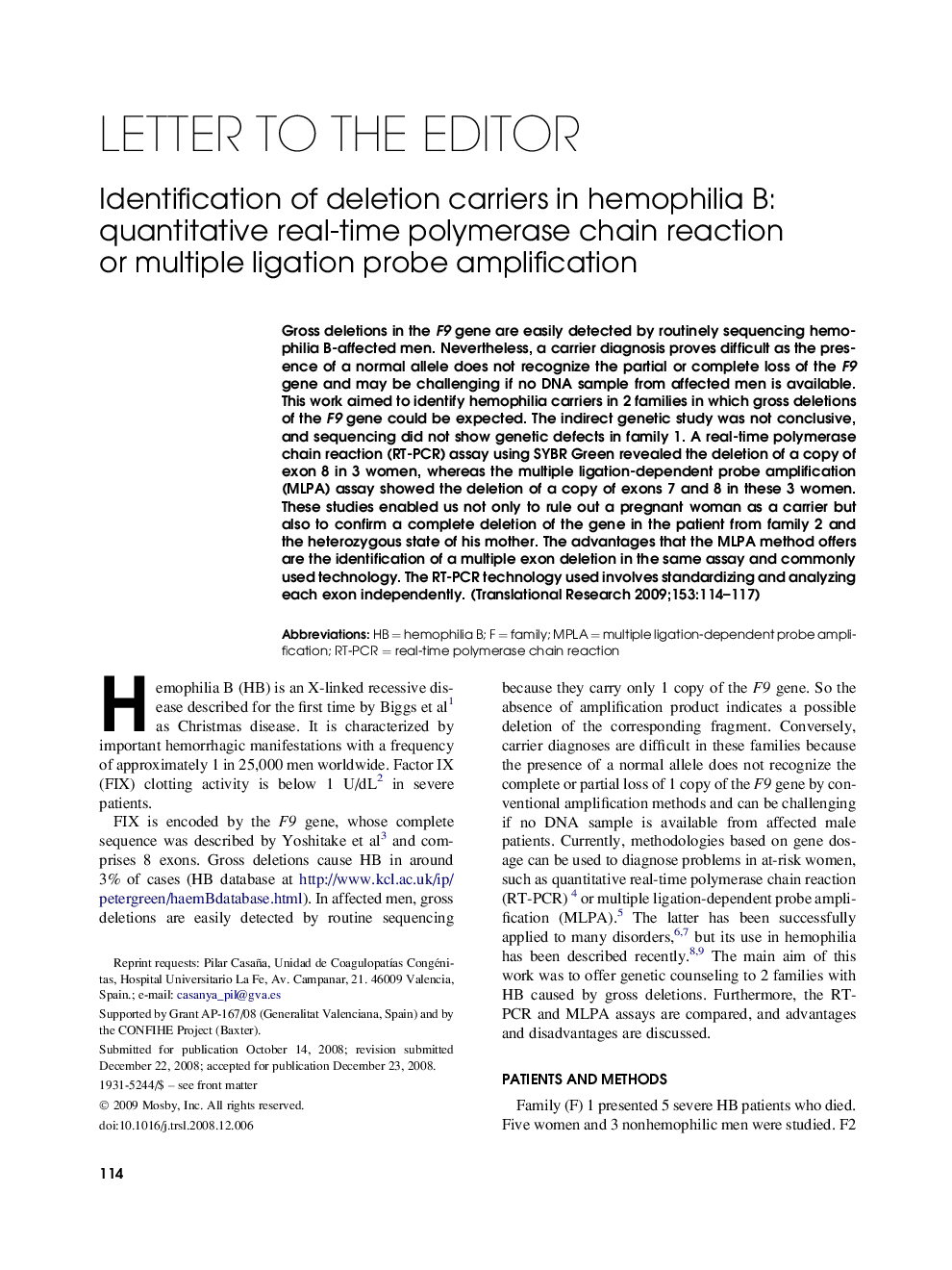| Article ID | Journal | Published Year | Pages | File Type |
|---|---|---|---|---|
| 3841207 | Translational Research | 2009 | 4 Pages |
Gross deletions in the F9 gene are easily detected by routinely sequencing hemophilia B-affected men. Nevertheless, a carrier diagnosis proves difficult as the presence of a normal allele does not recognize the partial or complete loss of the F9 gene and may be challenging if no DNA sample from affected men is available. This work aimed to identify hemophilia carriers in 2 families in which gross deletions of the F9 gene could be expected. The indirect genetic study was not conclusive, and sequencing did not show genetic defects in family 1. A real-time polymerase chain reaction (RT-PCR) assay using SYBR Green revealed the deletion of a copy of exon 8 in 3 women, whereas the multiple ligation-dependent probe amplification (MLPA) assay showed the deletion of a copy of exons 7 and 8 in these 3 women. These studies enabled us not only to rule out a pregnant woman as a carrier but also to confirm a complete deletion of the gene in the patient from family 2 and the heterozygous state of his mother. The advantages that the MLPA method offers are the identification of a multiple exon deletion in the same assay and commonly used technology. The RT-PCR technology used involves standardizing and analyzing each exon independently.
